Tip of the Spear
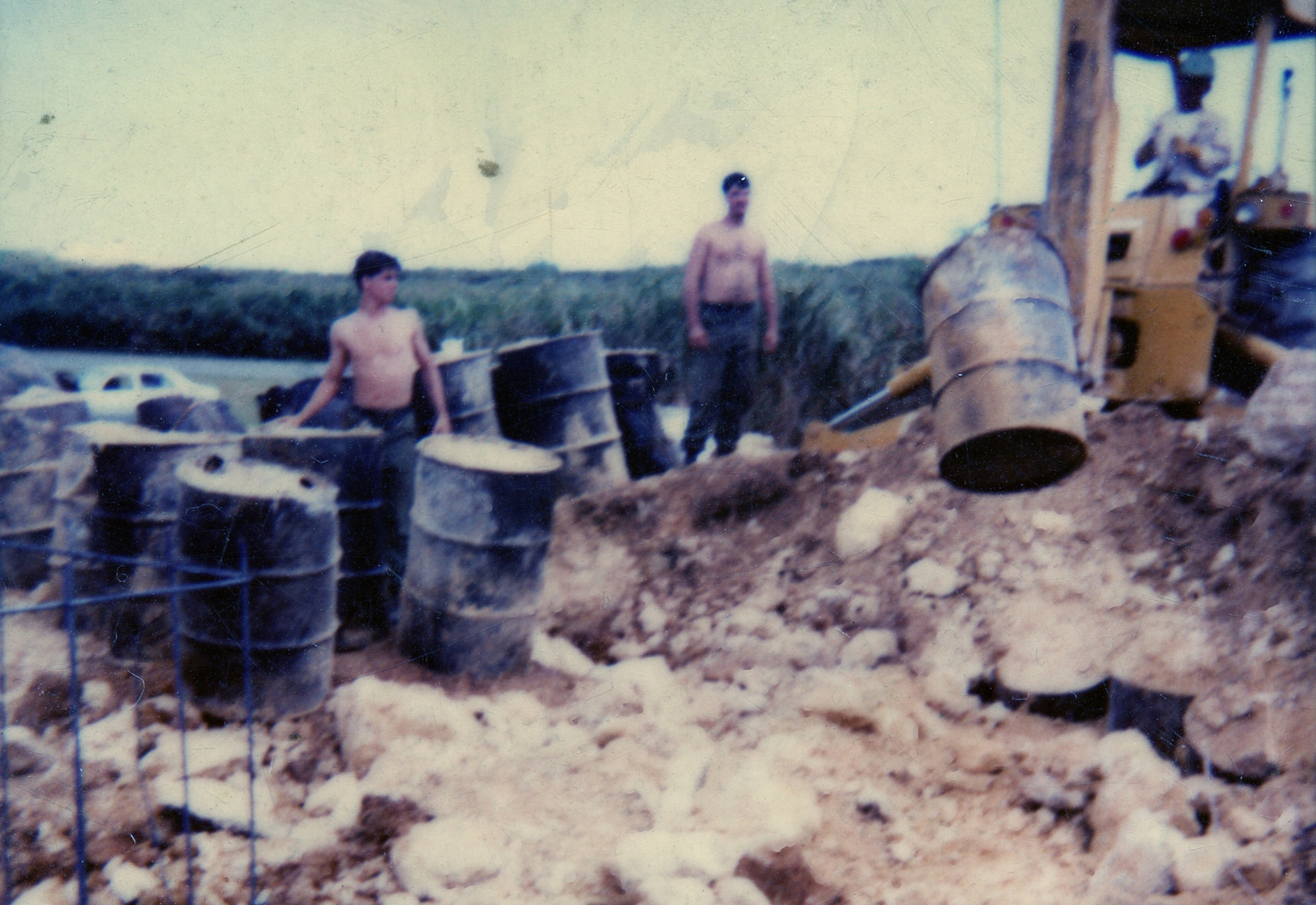 Japanese soldiers move Agent Orange barrels on Okinawa. Credit: The Japanese Times.
Japanese soldiers move Agent Orange barrels on Okinawa. Credit: The Japanese Times.
August 10th is Agent Orange Awareness Day in recognition of that day in 1961 when the U.S. began aerial spraying of herbicides in Vietnam. More than 50 years after the use of Agent Orange ended, this chemical continues to impact veterans and their families as well as multiple generations of Vietnamese. This past March, on Vietnam Veterans Day, I was asked to speak at the Agent Orange Memorial in Springfield, Tennessee. What follows is a transcript of that speech.
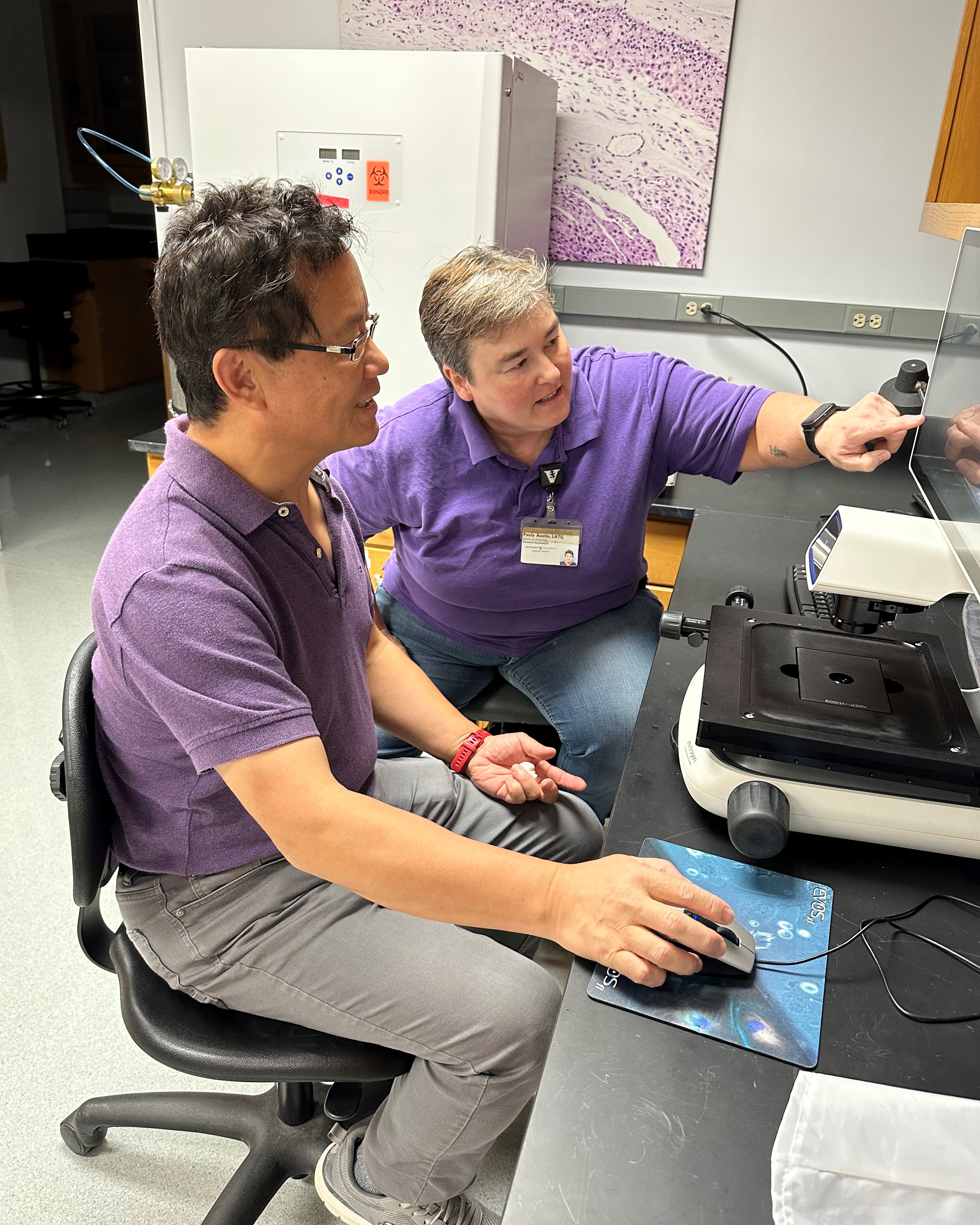 Li (left) and Paula (right) reviewing data in the lab.
Li (left) and Paula (right) reviewing data in the lab.
Good afternoon. My name is Kaylon Bruner Tran. I am scientist at Vanderbilt University Medical Center in Nashville and hold a PhD in Reproductive Pathology. My long-time research partner, Kevin Osteen, is a reproductive endocrinologist. Unfortunately, he was unable to be here today; however, Paula Austin, one of our team members, is here with me. Like many of you, she is a veteran of the U.S. Marine Corps.
Over the years, our research group has begun to focus on toxicology, which is the study of identifying how chemical exposures affect health. And that, of course, is why I was invited here today. As scientists, our goal is to make a positive difference in this world. I truly believe that as a group, scientists are dedicated to improving lives, but it is undeniable that there are sometimes unintended consequences of research conducted with the best of intentions.
In 1941, during the early days of World War II, four groups of scientists, two in the U.S. and two in Great Britain, were independently working to identify herbicides that could be used to boost food production by eliminating weeds. Over the course of their work, one of the men realized the weed killers might also have military value. He proposed that at high doses the herbicides would kill all plants and not just the unwanted weeds. Both governments embraced this idea, and eventually each team of botanists identified the same two chemicals as the most effective for destroying enemy food crops. The idea was to use the chemicals against the Japanese, but the war ended before the plan could be set in motion. Less than two decades later, that same chemical combination would be tapped for use in Vietnam. Because the herbicides were shipped to Vietnam in black barrels with an orange stripe, it was quickly nicknamed Agent Orange.
I never met the men responsible for Agent Orange, but I am confident their intent was to do good. They were doing their part to ensure the Allies won the war. It was a noble goal. At least one of these men, Dr. Arthur Galston, was horrified at the use of Agent Orange in Vietnam and publicly warned that the damage done could last for decades or perhaps be irreversible. His concerns were ignored.
Now I want to speak directly to our Vietnam veterans.
In 1879, General William Sherman famously said, “War is hell.” You all know this because you were there and you lived it. But what about after the war? What happened when you came home? I know the memories remain, the pain of loss or the guilt of being a survivor. These are the mental scars of battle that all soldiers from the beginning of time to the end of time must bear, and you knew that going in. Each of you was willing to risk your life and bear the scars that you knew would come. I, for one, am grateful to you for your service and your sacrifice.
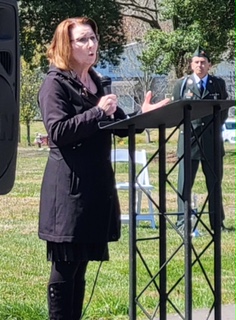 Kaylon speaking at the Agent Orange
Kaylon speaking at the Agent Orange
Memorial in Springfield, Tennessee,
on March 29, 2023.
Despite your willingness to sacrifice yourselves, none of you agreed to risk the life and health of your child or your grandchild. You knew you might not come home, but you could not know that you might bring something back that could reach far into the future and cause destruction and death.
Of course, I am speaking of Agent Orange, a chemical cocktail designed to destroy enemy foliage and food crops. And it did. You were told it was harmless to humans. It was not. The reason Agent Orange was not harmless was because it contained dioxin. Dioxin is one of the most toxic compounds known to mankind. It has no commercial value and was not supposed to be present in Agent Orange, but it was.
Millions of gallons of Agent Orange were spread across Vietnam exposing a countless number of Vietnamese soldiers and civilians as well the thousands of soldiers sent from around the world to fight on their behalf. Unfortunately, just as Dr. Galston predicted, the damage did not end once the spraying stopped.
Most American soldiers in Vietnam were between the ages of 17 and 25. The average age was only 19. At 19, most men are still growing. The brain does not fully mature until the age of 25. The reason this is important is that you are most sensitive to dioxin when you are growing and developing. For this reason, the younger you are the more damage it does. Of course, sperm cells are always developing and growing in healthy men. These cells are exquisitely sensitive to dioxin and, thus, to Agent Orange.
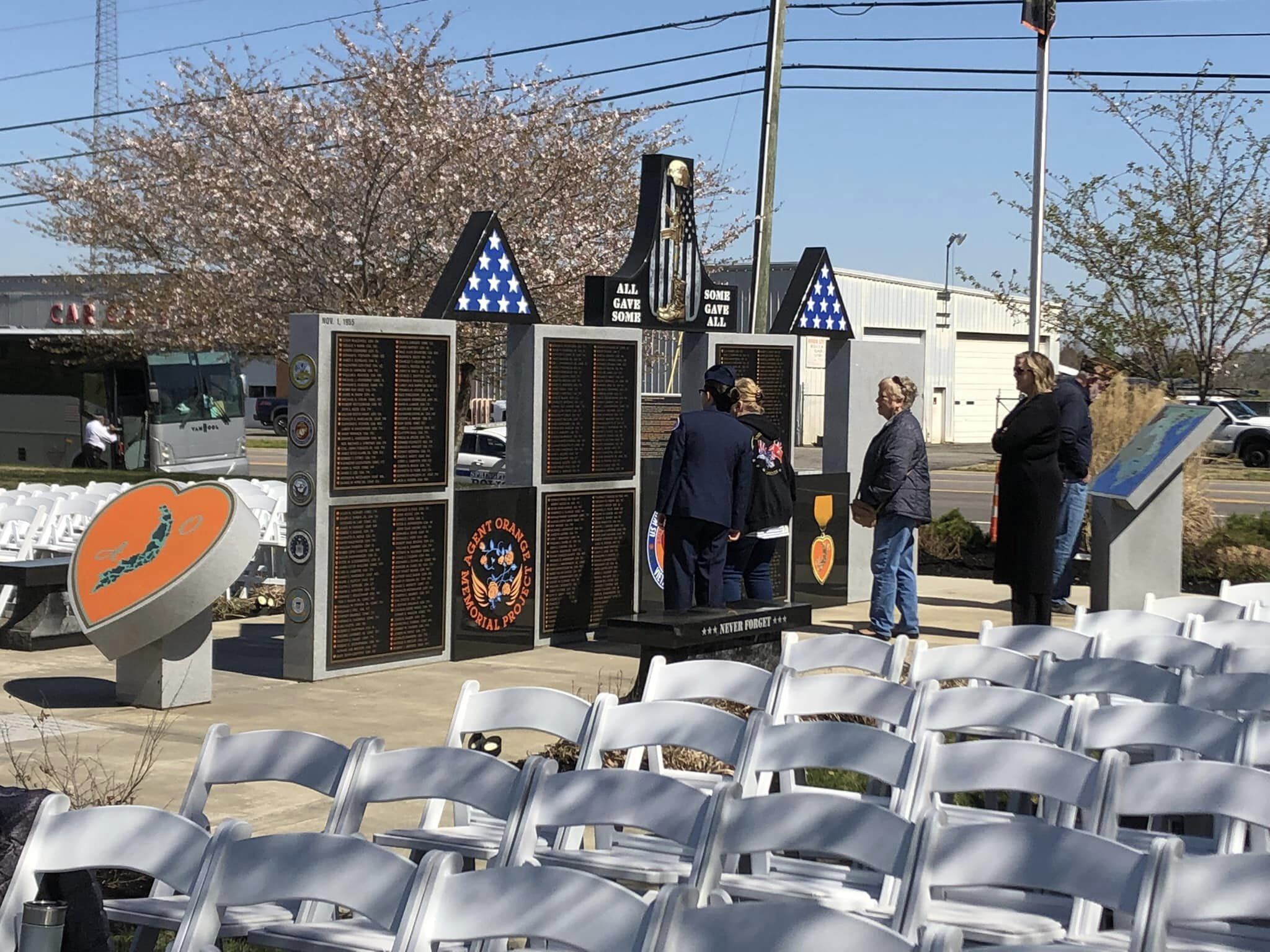 The Agent Orange Memorial in Springfield, Tennessee, USA. For more information, find them on Facebook.
The Agent Orange Memorial in Springfield, Tennessee, USA. For more information, find them on Facebook.
It’s been nearly 80 years since the botanists discovered the chemicals that came to be known as Agent Orange. And now I stand before you today—another scientist trying to do good. Can my colleagues and I undue what those men did? As a scientist, I cannot change what happened in the past. I cannot change the fact that you were exposed, and I cannot change the damage that it has done to your health. But I want you to know two things. First, the research that Kevin and I have conducted over 20 years or so has confirmed what many of you already know. Your exposure to Agent Orange can and does affect the next generation and at least two generations after that. But maybe it doesn’t have to.
And that’s the second thing I want you to know. The research that we have conducted—and, to be clear, we do this work in mice, because who in their right mind would expose people to dioxin intentionally? Our research has shown that the damage caused by Agent Orange does not have to be transmitted to the next generation. There is a way to break the cycle.
Our studies in mice have found that dioxin impairs fertility and increases the risk of pregnancy loss, preterm birth and conditions associated with preterm birth, including babies that are born too small or that develop life-threatening diseases of the lung and intestine. We have shown all of these disorders can be passed down not only from a mother exposed to dioxin but also from an exposed father. I know the VA only officially recognizes spina bifida as being a consequence of the father’s exposure, but we are convinced that’s only the tip of the spear.
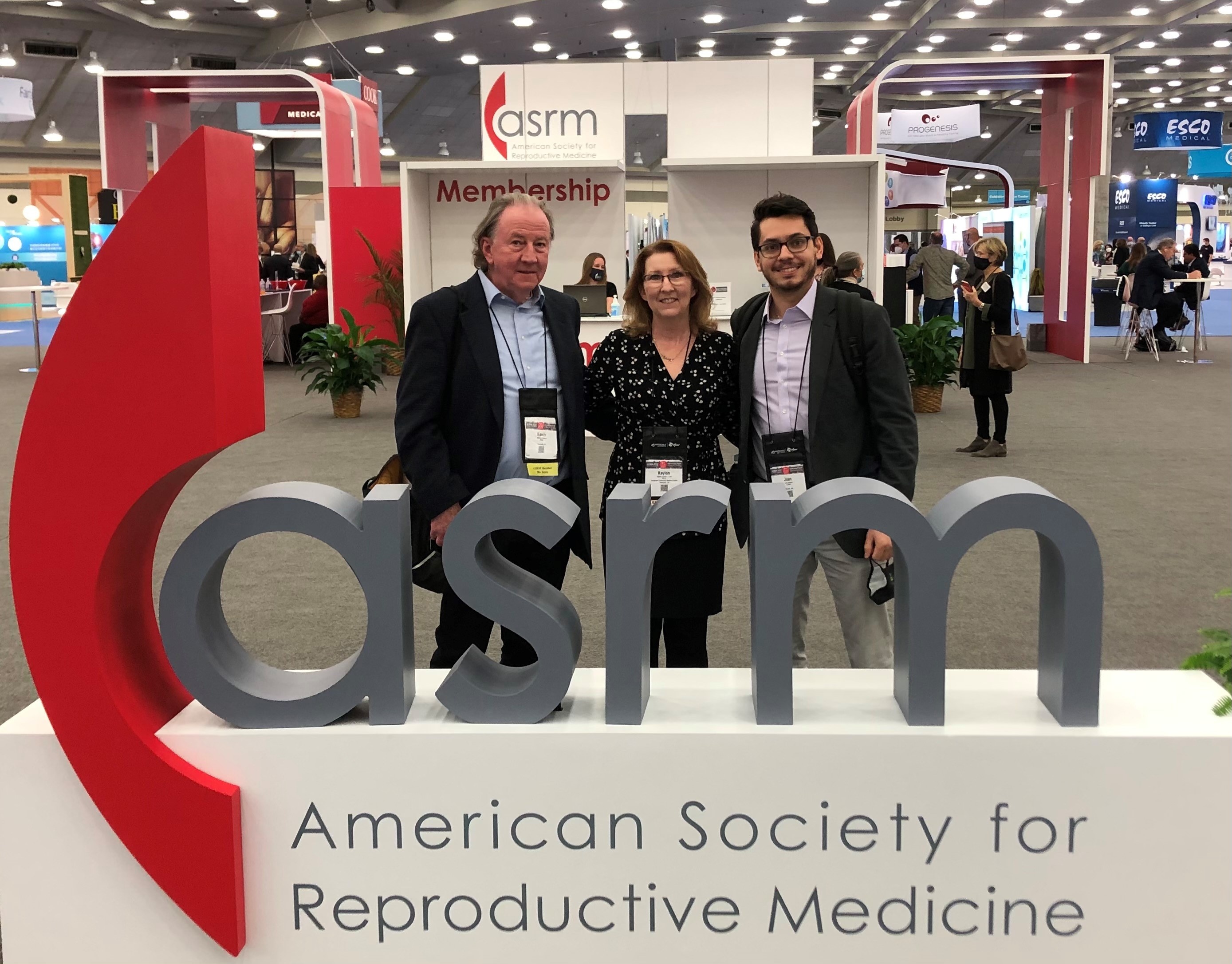 Kaylon (center) with research colleagues Kevin Osteen, PhD (left) and Juan Gnecco, PhD (right)
Kaylon (center) with research colleagues Kevin Osteen, PhD (left) and Juan Gnecco, PhD (right)
at the annual conference of the American Society for Reproductive Medicine in 2021.
We are reproductive biologists, and that is our focus. We do not study cancer or many of the diseases you may be concerned about. However, we and others have demonstrated that much of our adult health is determined by the health of the parents before conception and the health of the pregnancy environment itself. Few people realize that the health of the sperm dictates the health of the placenta. A healthy placenta is crucial to having a healthy child. We have found that, at least in mice, we can repair the damage done to sperm by dioxin. When the sperm is better, the placenta functions better, and the offspring are healthier.
Can our approach work in humans? I believe it can. And eventually those studies will be done by others in our field. I know that we are far too late to help you—our veterans who served so honorably in Vietnam—but I promise you, you are not forgotten, and we will not let Agent Orange be your legacy.
August 2023
Quick Links
| Pages | Other Pages | |
|---|---|---|
| Home | The Agent Orange Trilogy | |
| The RAM Blogs | Edge of Justice | |
| Books | Help | |
| Media | ||
| About Me | ||